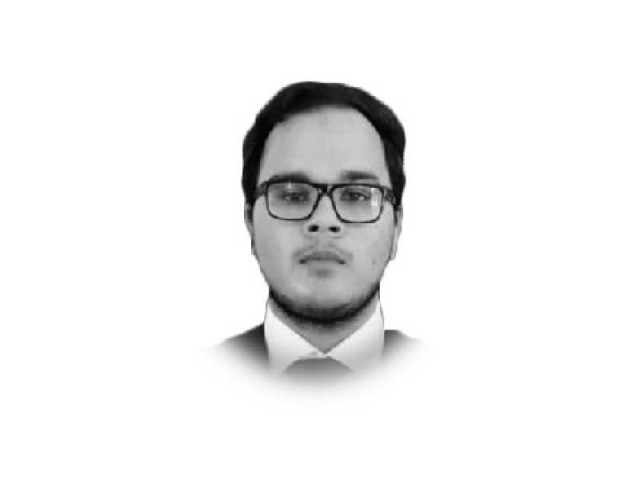Freedom of speech to nourish democracy
Pakistan is plagued with religious intolerance which leads to extremism

The expressions of Voltaire “I disapprove of what you say, but I’ll defend to the death your right to say it” signifies the importance of the principle of freedom of speech. In this quest, thinkers like John Locke and JS Mill have also voiced for freedom of speech being as essential component of individual liberty. It is this freedom to express that provides nourishment to democracy. Inferences from such expressions are that we might have different opinions but have the right to express our opinions.
Under Article 19 of the United Nations Charter of Universal Declaration of Human Rights, “Everyone has the right to freedom of opinion and expression; this right includes freedom to hold opinions without interference and to seek, receive and impart information and ideas through any medium and regardless of frontiers.” The problem arises when these rights are not protected, which as a result gives rise to hate, frustration, and at times to extremism and even movements for separation.
Apart from being a constitutional right, freedom of speech is also a guaranteed right in Islam. A famous hadith of the Holy Prophet (peace be upon him) goes on to say, “Difference of opinion in the Muslim community is a sign of divine favour” and “it is a mercy of God that the theologians differ in opinion”. Drawing inference from this, it is a well-established fact that Pakistan was created under Islamic principles, whereby freedom of speech and tolerance were among its essential components.
However, Pakistan is plagued with religious intolerance which leads to extremism. Exhibiting this mindset, there are ample examples where procedural flaws and loopholes in the legal process are used to silence dissenting voices. Mashal Khan is a classic example of this who under the garb of alleged blasphemy was brutally lynched and killed by his own university fellows. His only crime was that he engaged in debate and voiced his difference of opinion.
Unfortunately, Pakistan’s political dynamics are no different as it paints a gloomy picture in terms of freedom of speech and difference of opinion. One could say that silencing of opposition has become a norm of successive governments upon ascending the chair. Using multiple tools of oppression, they try to curb the dissenting voices in any form: through NAB, FIA, frivolous FIRs, and intelligence agencies. If we undertake a comparative study of both PTI and PML-N governments, nothing appears to have changed. The previous government of PTI used NAB to charge the opposition with cases of corruption and misuse of authority. The sad part is that, in the majority of the cases, NAB could not prove those charges, and the suspects were ultimately provided relief by the courts. In the verdict of PML-N leader Khwaja Saad Rafique, Justice Baqar regretted that it was frequently alleged that NAB was being flagrantly used for political engineering and that the watchdog’s discriminatory approach was also affecting its image and had shaken the faith of people in its credibility and impartiality. In another incident, the Anti-Narcotics Force had arrested Rana Sanaullah and claimed to have recovered 15 kg heroin and other drugs from Sanaullah’s car. The then Narcotics Minister, Shahreyar Afridi, claimed there were footages of heroin being recovered from Sanaullah’s car, but to this date those footages could not be produced in court. Consequently, the LHC granted bail to Sanaullah.
Similarly, the current coalition government led by PML-N is no different. After his dismissal as Prime Minister, Imran Khan announced his ‘Haqeeqi Azadi March’ on the pretext that his government was ousted under a regime change conspiracy orchestrated by the United States. In retaliation, the government launched a complete crackdown on PTI leaders and sympathisers. The opposition leaders’ houses were raided without the police having any search warrants or any lady police officer. In a recent television interview, Imran Khan claimed that Pakistan was heading to a point of no return where it may be broken into three pieces. In response Interior Minister Rana Sanaullah said that the government would plan on charging him with treason. Private citizens, such as Iman Mazari, had to face a case for using derogatory language against a powerful state institution. Mazari uttered those comments under distress after her mother was arrested by Punjab police in a 50-year-old land case.
The reported rise in radicalism among youth in Pakistan since 9/11 has been attributed to religious education in madrasas and schools. However, education is only part of the problem; politicians have often used the religion card in order to play with the sentiments of the public. Pakistan’s primary approach must be to focus on a liberal religious education that highlights an inclusive Islam emphasising freedom and compassion. The media must also play its part as an agent of change. Reported news should be regulated to avoid spreading of any insensitive remarks and promote interfaith harmony, positive thinking and debate. Politicians must also play their role as they are the representatives of the people and they have sway over their followers. Amongst themselves, they must also exercise constraint and not silence the opposition as dissent is the pinnacle of any strong democracy. The above can only be achieved if we truly understand and follow the spirit “I disapprove of what you say, but I will defend to the death your right to say it”.
Published in The Express Tribune, June 15th, 2022.
Like Opinion & Editorial on Facebook, follow @ETOpEd on Twitter to receive all updates on all our daily pieces.















COMMENTS
Comments are moderated and generally will be posted if they are on-topic and not abusive.
For more information, please see our Comments FAQ